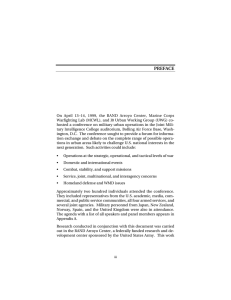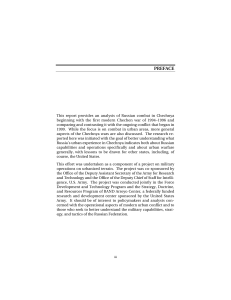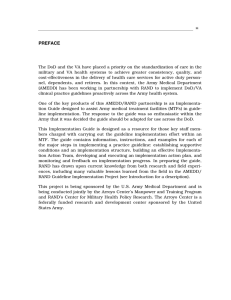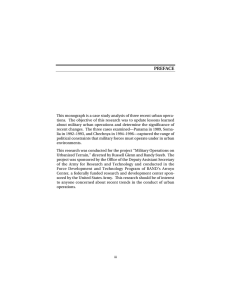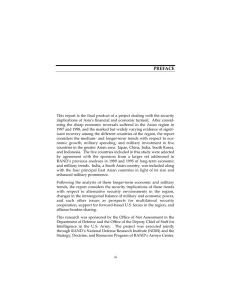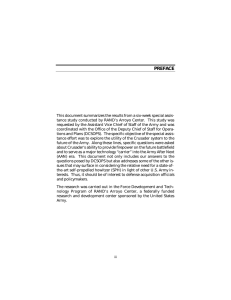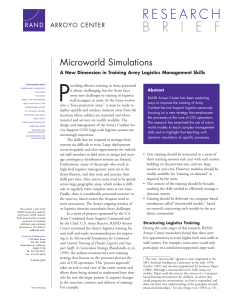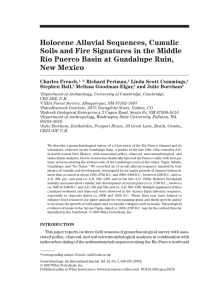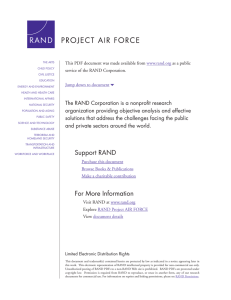PREFACE
advertisement
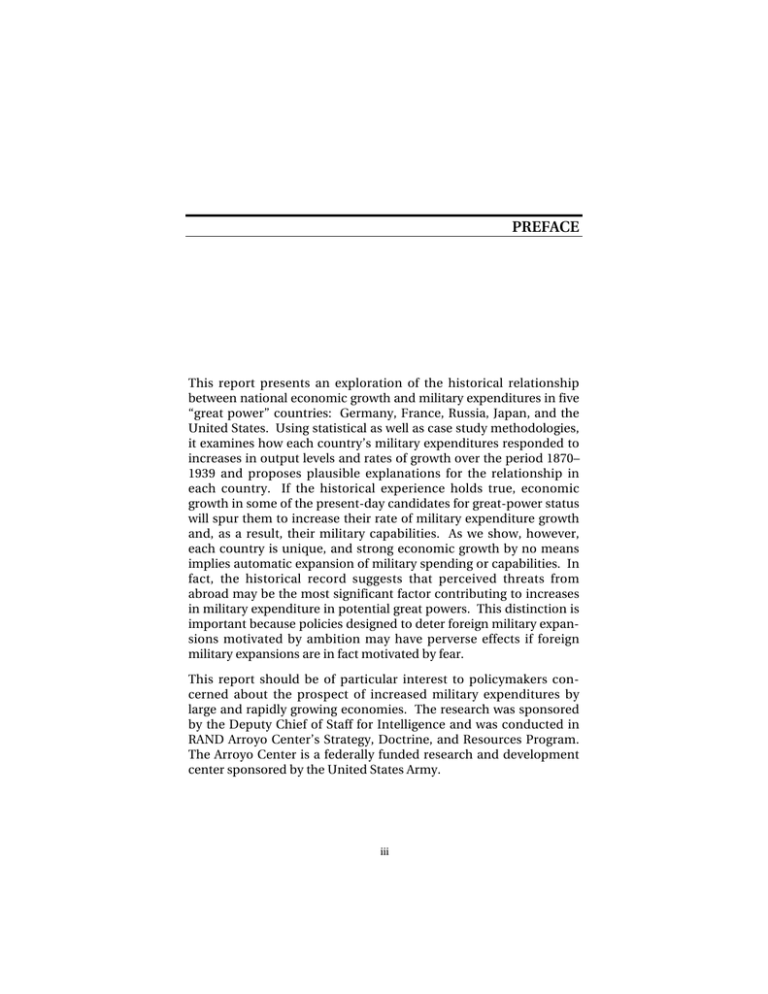
PREFACE This report presents an exploration of the historical relationship between national economic growth and military expenditures in five “great power” countries: Germany, France, Russia, Japan, and the United States. Using statistical as well as case study methodologies, it examines how each country’s military expenditures responded to increases in output levels and rates of growth over the period 1870– 1939 and proposes plausible explanations for the relationship in each country. If the historical experience holds true, economic growth in some of the present-day candidates for great-power status will spur them to increase their rate of military expenditure growth and, as a result, their military capabilities. As we show, however, each country is unique, and strong economic growth by no means implies automatic expansion of military spending or capabilities. In fact, the historical record suggests that perceived threats from abroad may be the most significant factor contributing to increases in military expenditure in potential great powers. This distinction is important because policies designed to deter foreign military expansions motivated by ambition may have perverse effects if foreign military expansions are in fact motivated by fear. This report should be of particular interest to policymakers concerned about the prospect of increased military expenditures by large and rapidly growing economies. The research was sponsored by the Deputy Chief of Staff for Intelligence and was conducted in RAND Arroyo Center’s Strategy, Doctrine, and Resources Program. The Arroyo Center is a federally funded research and development center sponsored by the United States Army. iii iv Military Expenditures and Economic Growth For more information on RAND Arroyo Center, contact the Director of Operations (tel 310-393-0411, extension 6500; FAX 310-451-6952; e-mail donnab@rand.org), or visit the Arroyo Center’s Web site at http://www.rand.org/organization/ard/
